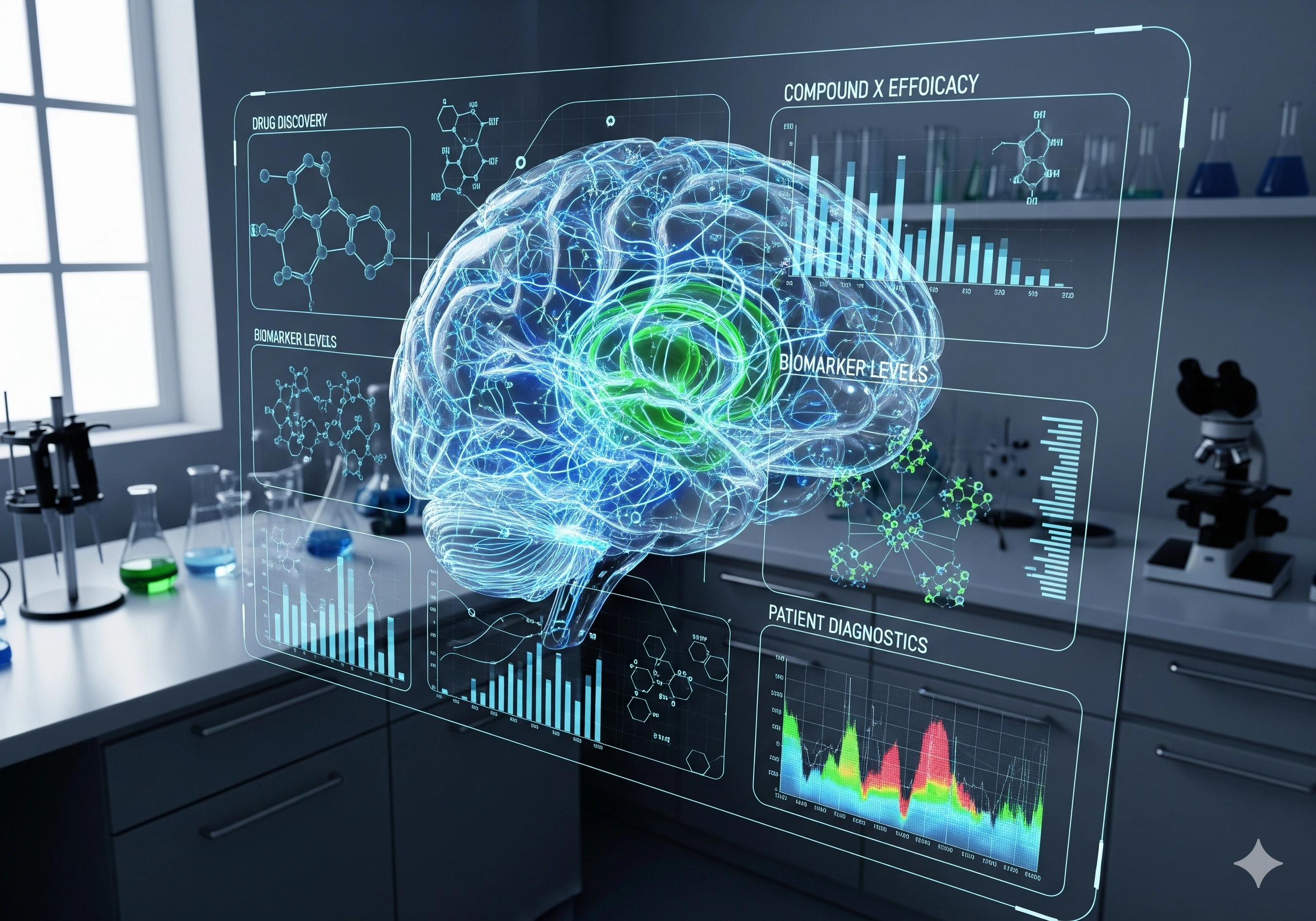

AI is turning the tables in the healthcare sector, for innovations to enter the vast sector. AI has paved huge opportunities mainly in dementia care and neurodegenerative disease management. From the year starting 2023 to 2025, there has been excellent collaboration between healthcare providers, academic institutions, and AI firms that have accelerated breakthroughs in diagnostics, personalized treatment, and drug discovery. Also, global standardization is immensely growing with its identification to regulatory, operational, and ethical challenges, generating an effective framework for equitable and scalable AI deployment. This is a transformational journey for the investors in the healthcare market.
In the past two years, the healthcare sector has experienced a certain growth in cross-sector partnerships that have elevated AI to deal with neurodegenerative disease. For example, the Icahn School of Medicine at Mount Sinai opened the AI small molecule drug discovery center in 2025, merging traditional methodologies to design therapeutics with AI for health conditions such as parkinson’s and alzheimers. Similar to this, an AI adoption UCSD-led team chose AI to address PHGDH as a novel drug focused on alzheimers after the failure of conventional hypotheses elaborating AI’s ability to disclose hidden biological pathways.
Leeds Teaching Hospital (NHS trust) has excelled in AI projects to address motor neurone disease (MND) previously by examining magnetic resonance fingerprinting data and analyzing patient videos. Also, the empire AI efforts in New York were fueled by $500 million in funding, merging AI-powered computer vision with deep RNA research to identify rare neurodegenerative diseases such as amyotrophic lateral sclerosis.
The global standardization framework is skyrocketing to provide safety, equity, and transparency in AI tools. The World Health Organization’s global initiatives on AI for health (GI-AI4H) have mainly stressed harmonizing governance standards specifically for middle and low-income countries to overcome AI-driven healthcare disparities. The cross-border partnership is crucial. The artificial intelligence and technology collaboratories (AITC) have gathered engineers, ethicists, and clinicians to design AI solutions introduced for emphasizing ethical training, bias mitigation, and dementia care.
Challenges come along with the progress of AI in the healthcare sector. The ethical risks, like algorithmic bias and data privacy breaches and demand rigorous oversight. For instance, the AI-Y checklist for population ethics focuses on the need for contextual adaptability in AI deployment, mainly in diverse healthcare settings. Therefore, the investors should focus on initiating new collaborations that merge ethical guidelines from the outset like PRISM biolab and Elix’s partnership to merge AI-driven drug discovery with peptide mimetic technology.